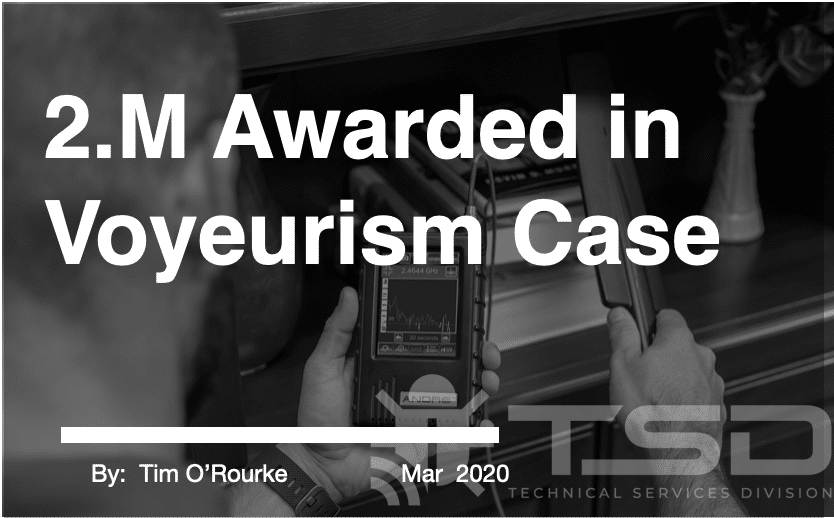It’s the 21st century. Almost everyone now has access to high-quality cameras and Wi-Fi. This means it’s easier than ever to take videos and pictures of people without them knowing. And while most people use this technology for good, there are always those who will misuse it for nefarious purposes.
This problem isn’t just limited to today.
\Back in 1999, two women working in the same office building at Ocwen Financial Corp. discovered that someone had been secretly videotaping them while they were using the restroom and from underneath their desks. The women eventually traced the footage back to their co-worker, Ronald Minnis Jr.
Minnis used the footage to create a “peeping tom” type of video, which he then sold on the internet. The women sued Ocwen for negligence, saying that the company should have known about Minnis’ voyeuristic tendencies and done something to stop him.
The court agreed with the women and ordered Ocwen to pay $2 million in damages.
Minnis was arrested and ultimately pled guilty to two counts of misdemeanor voyeurism. In exchange for his plea, prosecutors dropped nine other similar charges that had been filed against him.
What Can Be Learned From This Case
This case brought up a lot of questions about office security and just how far employees will go to violate the privacy of their co-workers. While it may seem like a victimless crime, voyeurism can have a lasting impact on those victimized by it. In some cases, it can even lead to PTSD, career loss and other life altering consequences.
This is why it’s important for companies to have strict policies in place to prevent something like this from happening. Employees should be made aware of the consequences of breaking these rules, and there should be a no-tolerance policy when it comes to voyeurism.
Nowadays, companies can take all sorts of high-tech security measures to prevent something like this from happening again. For example, they can install motion-activated cameras outside restrooms and in common areas also post signs warning employees that they may be under surveillance.
Some of the most common safety measures include:
- Cameras in common areas
- Signs warning of surveillance
- Key card access to certain areas
- Employee training on privacy rights
While there’s no surefire way to prevent something like this from happening, having these measures in place can deter would-be criminals and make it easier to catch them if they do break the rules.
Ultimately, it’s up to each company to decide what security measures are right for them. But the one thing that’s clear is that the issue of voyeurism in the workplace is not going away anytime soon. And companies need to be prepared to deal with it accordingly.
\How To Protect Yourself From Voyeurism
If you’re worried about becoming a victim of voyeurism, there are some steps you can take to protect yourself.
The most important thing is to be aware of your surroundings. Checking your office and your home for surveillance devices, like cameras, is a good place to start.
You should also be careful about who you let into your space. If you don’t know someone, don’t let them in. And if you see something suspicious, don’t hesitate to report it to the authorities.
Finally, it’s always a good idea to keep your doors and windows locked. This will help deter would-be criminals and give you some peace of mind. In most voyeur cases a camera is the preferred tool. To detect it all that is needed is a strong flashlight to pick up the reflection of the lens. In several cases clients have found these items with the flashlight on their cell phone.



